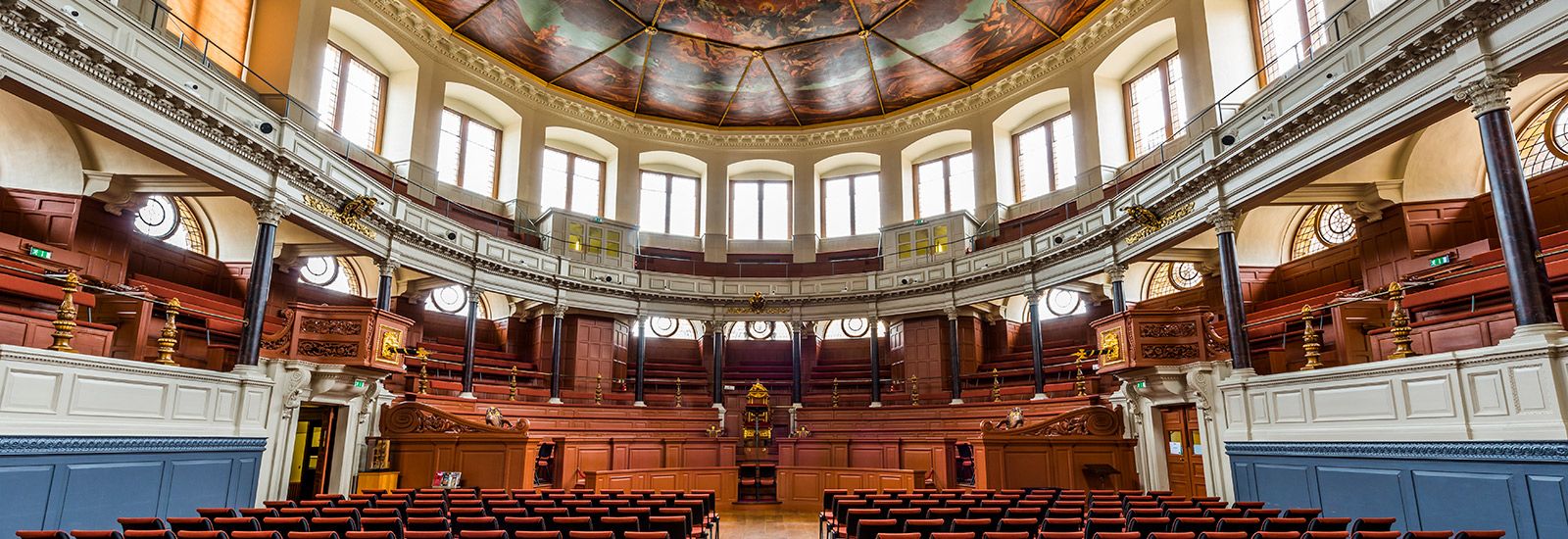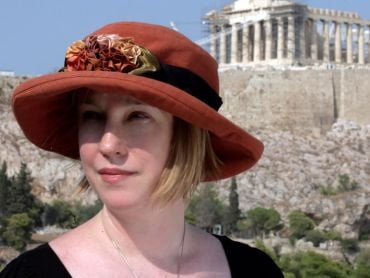
Professor of Poetry
The Oxford Professorship of Poetry is regarded as one of the most prestigious and prominent posts in the field of poetry. The Professorship of Poetry is held for four years. The term of office for the current Professor of Poetry began on 9 October 2023. Elections took place in Trinity Term 2023 and a meeting of Convocation was held in Convocation Hall at 3.45pm on Friday 16 June 2023 to announce the appointment of A. E. Stallings.
 A. E. Stallings
A. E. StallingsProfessor Marion Turner, Chair of the English Faculty Board at Oxford, said, ‘Poetry is the heart of the English Faculty and other Humanities Faculties in Oxford. Poetry engages and excites children before prose does. Poetry crosses cultures and time: in the pandemic many people realised anew its power and importance. I am delighted to welcome A.E. Stallings as Oxford’s 47th Professor of Poetry, confident that she will bring something new and thrilling to the role, as her predecessors have done.
A.E. Stallings is a poet of unusual range and flexibility. A translator, a Classicist, a poet who is particularly focused on technique and form, she runs regular workshops with refugees, teaches extensively, and writes on poetry by American, English, Canadian, Greek, Irish, and Afro-Caribbean poets. We are extremely lucky to be able to host her for the next four years, and I know that her talent will be generative for a generation of our students and other members of the Oxford community.’
A new Oxford Professor of Poetry is elected every four years, and their responsibilities include giving a public lecture each term, as well as an oration at the University’s honorary degree ceremony every other year.
Voting was open to members of Convocation, a group that includes Oxford graduates who have had their degree formally conferred, and members of staff who make up the University’s ‘parliament’, known as Congregation.
Past Professors of Poetry
| 18th Century | Date of Professorship |
| Joseph Trapp (1679–1747) Thomas Warton (1688[?]–1745) Joseph Spence (1699–1768) John Whitfield ([?]) Robert Lowth (1710–87) William Hawkins (1722–1801) Thomas Warton (1728–90) B. Wheeler ([?]) John Randolph (1749–1813) Robert Holmes (1748–1805) James Hurdis (1763–1801) | 1708–18 |
| 19th Century | |
| Edward Copleston (1776–1849) John Josias Conybeare (1779–1824) Henry Hart Milman (1791–1868) John Keble (1792–1866) James Garbett (1802–79) Thomas Legh Claughton (1808–92) Matthew Arnold (1822–88) Sir Francis Hastings Charles Doyle (1810–88) J C Shairp (1819–85) Francis Turner Palgrave (1824–97) William John Courthope (1842–1917) | 1802–12 1812–21 1821–31 1831–42 1842–52 1852–7 1857–67 1867–77 1877–85 1885–95 1895–1900 |
| 20th Century | |
| A C Bradley (1851–1935) J W Mackail (1859–1945) Sir Thomas Herbert Warren (1853–1930) [Vacancy] W P Ker (1855–1923) H W Garrod (1878–1960) E. de Selincourt (1870–1943) George Gordon (1881–1942) Adam Fox (1883–1977) [Vacancy] Sir Maurice Bowra (1898–1971) Cecil Day-Lewis (1904–72) W H Auden (1907–73) Robert Graves (1895–1985) Edmund Blunden (1896–1974) Roy B Fuller (1912–91) John Wain (1925–94) John Jones (1924–2016) Peter Levi (1931–2000) Seamus Heaney (1939–2013 ) James Fenton (1949– ) Paul Muldoon (1951– ) | 1901–6 1906–11 1911–16 [Vacancy 1917–19] 1920–3 1923–8 1928–33 1933–8 1938–43 [Vacancy 1944–5] 1946–51 1951–5 1956–61 1961–6 1966–8 1968–73 1973–8 1979–84 1984–9 1989–94 1994–9 1999–2004 |
| 21st Century | |
Christopher Ricks (1933– ) | 2004–9 |